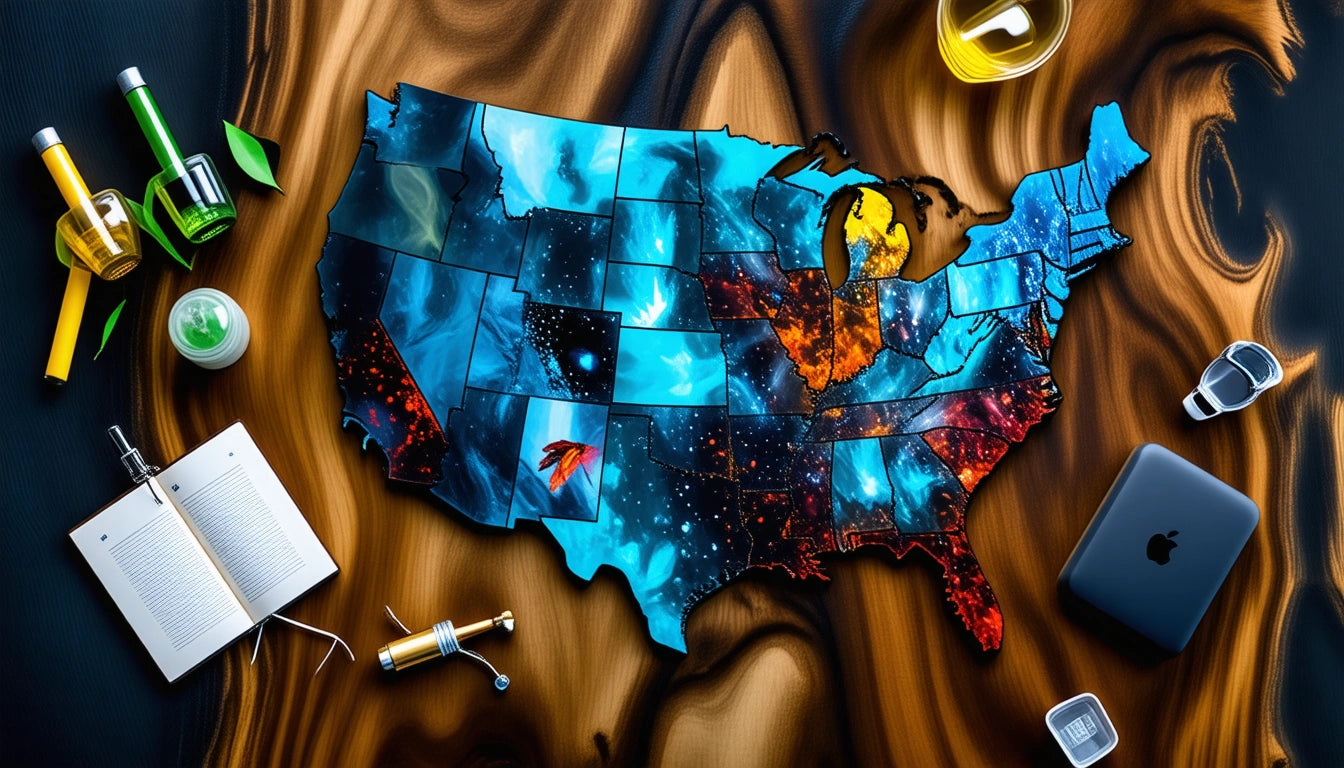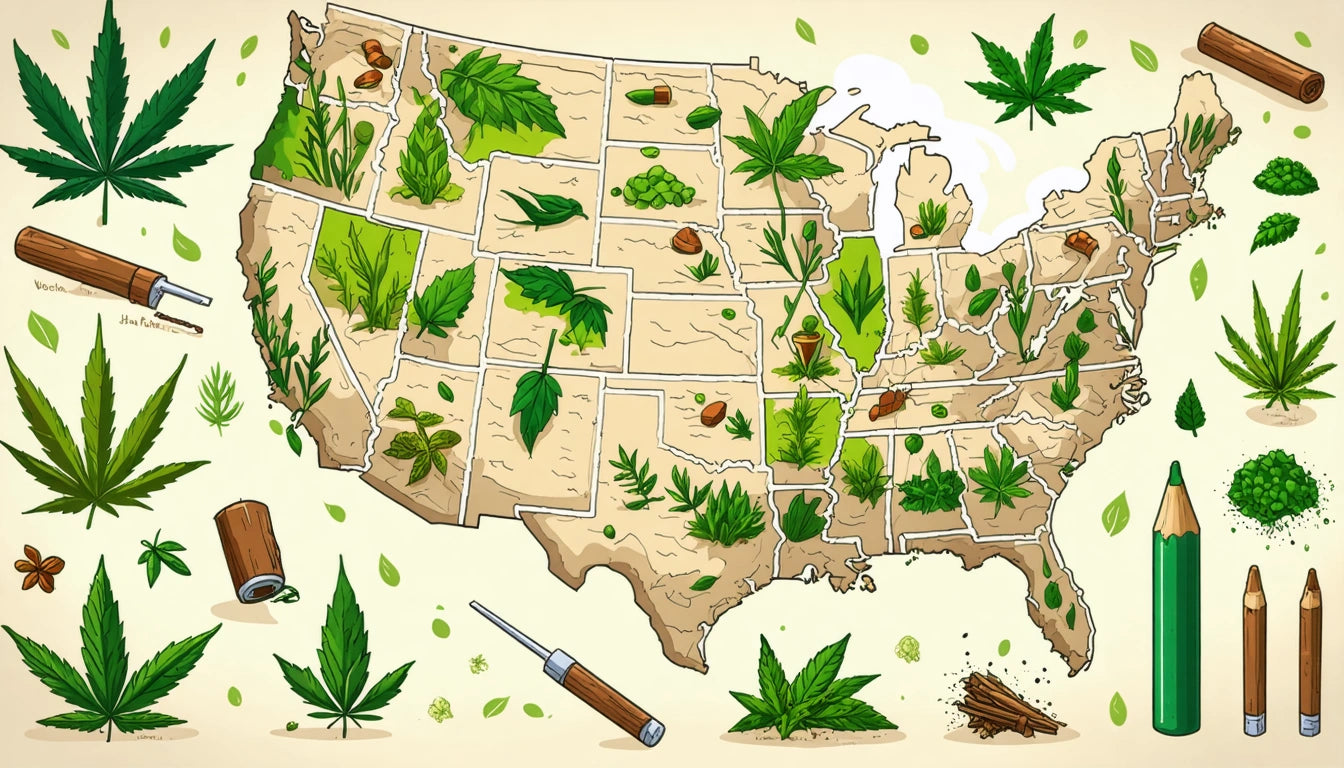- Understanding Vape Regulations: Nicotine vs. THC
- Vape Legality in Southern States: Kentucky, Georgia, and North Carolina
- Vape Laws in Northeastern States: New York and Beyond
- THC Vape Legality in the Midwest: Minnesota and Surrounding States
- Purchasing Considerations: What Consumers Should Know
- Navigating the Changing Landscape of Vape Regulations
The Legality of Vapes and THC Vapes Across Different U.S. States
The legal status of vaping products varies significantly across the United States, creating a complex patchwork of regulations that can confuse consumers and businesses alike. From nicotine vapes to THC vaporizers, state laws differ in their approach to age restrictions, sales regulations, and product availability. This guide examines the current legal landscape in several key states, including Kentucky, Georgia, New York, Minnesota, and North Carolina.
Understanding Vape Regulations: Nicotine vs. THC
Vaping regulations fall into two distinct categories: those governing nicotine products and those addressing cannabis-derived substances like THC. While nicotine vapes are federally legal (with restrictions), THC vapes remain federally prohibited but may be legal under state laws where marijuana has been legalized for medical or recreational use.
According to this comprehensive guide on THC vapes, the legal distinction between nicotine and THC products creates significant compliance challenges for retailers and consumers. Even in states with legal cannabis, regulations for vape products often include specific packaging requirements, such as child-resistant packaging solutions that prevent accidental exposure.
Vape Legality in Southern States: Kentucky, Georgia, and North Carolina
Are Vapes Illegal in Kentucky?
Nicotine vapes are not illegal in Kentucky, but the state has implemented restrictions. Consumers often ask, "Are vapes legal in Kentucky?" The answer is yes, but with limitations. As of 2023, Kentucky law:
- Prohibits sales to anyone under 21
- Requires ID verification for purchases
- Restricts certain flavored products
- Mandates licensing for retailers
For those wondering "Can you still buy vapes in Kentucky?" the answer remains yes, through licensed retailers, though options may be more limited than in previous years.
Georgia Vape Regulations
Similar to Kentucky, Georgia permits the sale of nicotine vaping products with restrictions. The question "Are vapes illegal in Georgia?" can be answered with a qualified no. Georgia follows the federal age minimum of 21 and imposes additional taxes on vape products. However, THC vapes remain illegal in Georgia, as the state has a limited medical marijuana program that doesn't include vaporizer products.
North Carolina's Approach to THC Vapes
When asking "Are THC vapes legal in NC?" the straightforward answer is no. North Carolina has not legalized recreational marijuana, and its limited medical cannabis program doesn't currently include vaporized products. Nicotine vapes, however, remain legal with age restrictions and sales regulations.
Vape Laws in Northeastern States: New York and Beyond
The Northeast has implemented some of the strictest vaping regulations in the country, particularly in New York State.
New York's Evolving Vape Landscape
The question "Are vapes illegal in NY?" requires a nuanced answer. While not entirely illegal, New York has enacted comprehensive restrictions:
- Ban on flavored nicotine vaping products
- Prohibition of online sales to NY residents
- Restricted retail locations
- Heavy taxation
For those asking "Are vapes legal in New York?" the technical answer is yes, but the practical reality is that availability is severely limited compared to other states. These restrictions are detailed in this analysis of vaping regulations across states.
THC Vape Legality in the Midwest: Minnesota and Surrounding States
The Midwest presents varying approaches to THC vape regulation, with Minnesota standing out for recent changes.
Minnesota's THC Regulations
The question "Are THC vapes legal in MN?" has become more complex following recent legislative changes. Minnesota has legalized certain hemp-derived THC products, including edibles containing limited amounts of THC. However, the legal status of vaporizer products specifically designed for THC remains restricted to the medical marijuana program, where approved patients can access them through licensed dispensaries.
This middle-ground approach differs from neighboring states, creating regional inconsistencies that challenge both consumers and businesses operating across state lines.
Purchasing Considerations: What Consumers Should Know
Understanding the legality of vape products is only the first step for consumers. Additional considerations include:
Age Verification Requirements
All states require purchasers to be at least 21 years old for both nicotine and THC vape products. Some retailers implement additional verification measures, as outlined in this guide to online purchasing processes.
Product Authenticity and Safety
Legal markets provide consumer protections that include testing requirements and manufacturing standards. These regulations help address concerns about product safety and quality, particularly relevant given past health issues associated with unregulated vape products.
Cross-State Travel Considerations
Consumers should be aware that traveling with vape products across state lines may present legal risks, especially with THC vapes when moving between legal and non-legal states. This is particularly important for residents of states like Virginia, as explained in this overview of regional cannabis laws.
Navigating the Changing Landscape of Vape Regulations
The regulatory environment for both nicotine and THC vapes continues to evolve rapidly. States like Kentucky, Georgia, New York, Minnesota, and North Carolina regularly update their approaches based on public health considerations, emerging research, and changing federal guidance.
For consumers and businesses alike, staying informed about current regulations is essential. This includes understanding not just whether products are legal, but also specific restrictions on flavors, packaging requirements, and sales channels. As the market matures, we can expect further refinement of these regulations, potentially including more standardized approaches across state lines.
Whether you're a consumer wondering about product availability in your state or a business navigating compliance requirements, the key takeaway is that vape legality varies significantly by location and continues to change. Regular verification of current laws remains the best strategy for anyone involved with these products.











Leave a comment
All comments are moderated before being published.
This site is protected by hCaptcha and the hCaptcha Privacy Policy and Terms of Service apply.